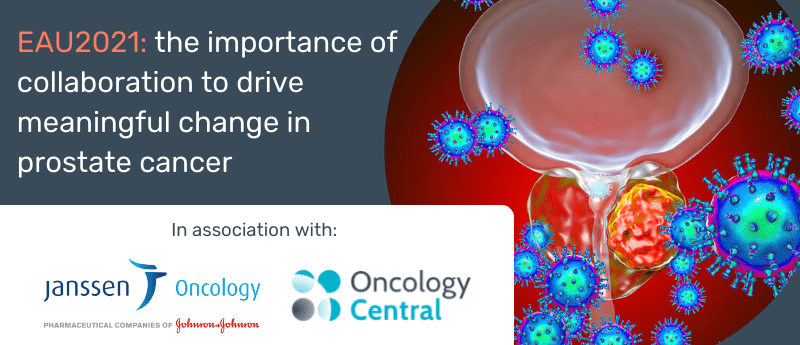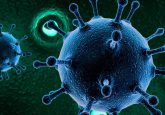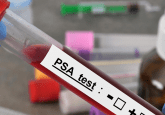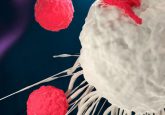European Association of Urology (EAU) 2021: the importance of collaboration to drive meaningful change in prostate cancer, an interview with Laetitia Decroix Guilloux

Important information
The following feature is intended for healthcare professionals only. Please tick the box below to confirm that you are a healthcare professional.
This article is for healthcare professionals only. Janssen Oncology commissioned and funded this article, which contains promotional content. The company has reviewed the article to ensure factual accuracy in relation to Janssen products and compliance with industry guidelines.
ERLEADA® ▼(apalutamide) prescribing information can be found here and adverse event reporting details can be found at the bottom of this document.
Tell us a bit about your experience, current role and what initially attracted you to your job?
I recently assumed the position of Vice President, EMEA Commercial Strategy Lead at Janssen Oncology. The focus of this role is to build and drive the strategic goals of Janssen Oncology in Europe, Middle East and Africa (EMEA). I work with Global, EMEA and regional teams to ensure our oncology strategy is well designed to best support patient care throughout EMEA.
What drives me in my work at Janssen Oncology is our strong focus on disrupting with intent. We are not trying to solve every problem in the cancer space, rather master innovation in specific areas where we can make the most meaningful difference to patients, their families and the entire oncology community. Supporting research and developing solutions that revolutionize long-term patient outcomes is of the utmost importance to me, and this resonates throughout the entire company.
Why do you think EAU is such an important milestone for the oncology field?
EAU is not an oncology-specific congress, it brings together people representing specialties from right across the urological health space. EAU sets the stage for the sharing of insights and best practice from perspectives ranging from pharma to academia to nursing to patients, all with the same goal: to tackle challenges in urological health. It’s a chance to hear about experiences and critical learnings from across the whole patient journey – and not just in oncology, either, but across urology more broadly.
Through this, it allows us to better understand the key areas of unmet need and pain points in the patient journey, so that we can develop collaborative solutions and tailored support. Every time I hear from a patient or nurse or scientist it helps me connect the dots towards gold standard patient care a little better.
Why is EAU an important congress for Janssen?
This coming together of a range of human experience emulates our mission of diversity and inclusion. Each person at EAU is viewing health challenges from a unique vantage point; a perspective that gives way to problem-solving potential ideas, solutions and strategies, which can bring about meaningful change.
Janssen Oncology as a company of course has an even broader range of expertise and experience in urology, thanks to over 10 years of dedication to advancing prostate cancer care [1] – but we can still continually benefit from hearing different voices and adding to our knowledge of the wider field, and its wider stories, too.
What is Janssen doing to make prostate cancer a less impactful disease?
Janssen have a longstanding heritage in prostate cancer [1] We make it a priority to be masters in our fields of expertise. Ten years ago, we were able to change the course of the disease thanks to the development of a treatment with a new mode of action [2,3]. Today, we continually build on and question how we can best serve patients.
Central to our mission is our commitment to give back time and quality of life to those living with cancer. Take metastatic hormone-sensitive prostate cancer (mHSPC), for example. Prostate cancer is the most common cancer in men in Europe and represents around 13% of new cancer cases a year [4,5]. Around 50,000 people across Europe are currently estimated to be living with mHSPC, which is when the metastatic prostate cancer still responds to treatments that lower testosterone [6,7]. Despite the existence of these treatments, however, most of these people will nonetheless progress to castration-resistant prostate cancer within a year, meaning that the disease becomes difficult to treat, and reduces median overall survival [8–11].
Our latest data presented at EAU support previous study findings, that those with low and high-volume disease have consistent outcomes and safety profiles [12–14]. This shows that the therapy is suitable for a heterogenous patient population, who may benefit from improved overall survival and maintained quality of life [12–14]. It is critical that we continue to investigate treatment options that delay disease progression before patients become castration-resistant, and can prolong overall survival – while also keeping sight of the importance of quality of life to patients.
The opinions expressed in this interview are those of the author and do not necessarily reflect the views of Oncology Central or Future Science Group.

About apalutamide:
Apalutamide is an orally administered, selective androgen receptor (AR) inhibitor approved in Europe and is indicated in:
- adult men for the treatment of non-metastatic castration-resistant prostate cancer (nmCRPC) who are at high risk of developing metastatic disease, and
- in adult men for the treatment of metastatic hormone-sensitive prostate cancer (mHSPC), also known as metastatic castration-sensitive prostate cancer (mCSPC), in combination with androgen deprivation therapy (ADT) [15].
Report an Adverse Event:
If you get any side effects, talk to your doctor, pharmacist or nurse. This includes any possible side effects not listed in the package leaflet. You can also report side effects directly via the Yellow Card Scheme at www.mhra.gov.uk/yellowcard. By reporting side effects you can help provide more information on the safety of this medicine.
Additional note for medicines with a black triangle:
▼This medicinal product is subject to additional monitoring and it is therefore important to report any suspected adverse events related to this medicinal product. Reporting forms and information can be found at www.mhra.gov.uk/yellowcard or search for MHRA Yellow Card in the Google Play or Apple App Store.
Adverse events should also be reported to Janssen-Cilag Limited on 01494 567447 or at [email protected]
References:
1. Janssen. Our Focus – Oncology. Available at: www.janssen.com/emea/our-focus/oncology. Accessed July 2021.
2. European Medicines Agency. ZYTIGA Summary of Product Characteristics. Available at: www.ema.europa.eu/en/documents/product-information/zytiga-epar-product-information_en.pdf. Accessed July 2021.
3. Janssen Oncology. ZYTIGA™ (Abiraterone Acetate) Receives FDA Approval For Treatment Of Metastatic Prostate Cancer After Priority Review. Available at: www.jnj.com/media-center/press-releases/zytiga-abiraterone-acetate-receives-fda-approval-for-treatment-of-metastatic-prostate-cancer-after-priority-review. Accessed July 2021.
4. HEAL. Men Prostate cancer. Available at www.env-health.org/IMG/pdf/prostate_testical.pdf. Accessed July 2021.
5. National Cancer Institute. Cancer Stat Facts: Prostate Cancer. Available at: www.seer.cancer.gov/statfacts/html/prost.html. Accessed July 2021.
6. Urology Care Foundation. Metastatic Hormone-Sensitive Prostate Cancer (mHSPC). Available at: www.urologyhealth.org/educational-resources?topic_area=717|&product_format=466%7c&language=1122%7c. Accessed July 2021.
7. Kantar Cancer MPact. mHSPC patients in France, Germany, Italy, Spain and UK. Available at: cancermpact.khapps.com/#id/207478%2C207484%2C207490%2C207496%2C207502/207478%2C07484%2C207490%2C207496%2C207502. Accessed July 2021.
8. Cancer.net. Prostate Cancer: Statistics. Available at: www.cancer.net/cancer-types/prostate-cancer/statistics. Accessed July 2021.
9. Cancer.net. Prostate Cancer: Stages and Grades. Available at: www.cancer.net/cancer-types/prostate-cancer/stages-and-grades. Accessed July 2021.
10. Cancer.net. Prostate Cancer: Types of Treatment. Available at: www.cancer.net/cancer-types/prostate-cancer/types-treatment. Accessed July 2021.
11. Dong L, Zieren RC, Xue W, de Reijke TM & Pienta KJ. Metastatic prostate cancer remains incurable, why? Asian J. Urol. 6(1), 26–41 (2019).
12. Chi KN, Chowdhury S, Bjartell A et al. Apalutamide in Patients with Metastatic Castration-Sensitive Prostate Cancer: Final Survival Analysis of the Randomized, Double-Blind, Phase III TITAN Study. J. Clin. Oncol. 39(20), 2294–2303 (2021).
13. Agarwal N, Chowdhury S, Bjartell A et al. Health-related quality of life (HRQoL) and patient-reported outcomes at final analysis of the TITAN study of apalutamide (APA) versus placebo (PBO) in patients (pts) with metastatic castration-sensitive prostate cancer (mCSPC) receiving androgen deprivation therapy (ADT). J. Clin. Oncol. 39(15), 5068–5068 (2021).
14. Chi K. Final Analysis Results From TITAN: A Phase 3 Study of Apalutamide (APA) vs Placebo (PBO) in Patients (pts) With Metastatic Castration-Sensitive Prostate Cancer (mCSPC) Receiving Androgen Deprivation Therapy (ADT). Oral presentation presented at ASCO GU 2021 (11–13 February 2021).
15. European Medicines Agency. ERLEADA. Available at: www.ema.europa.eu/en/documents/product-information/erleada-epar-product-information_en.pdf. Accessed February 2021.





